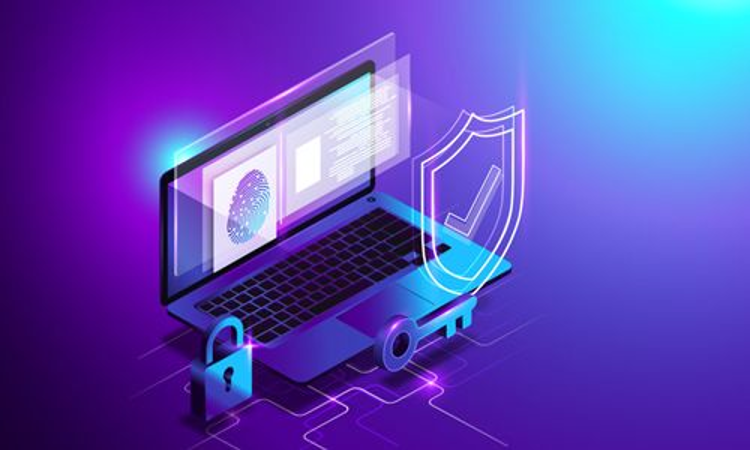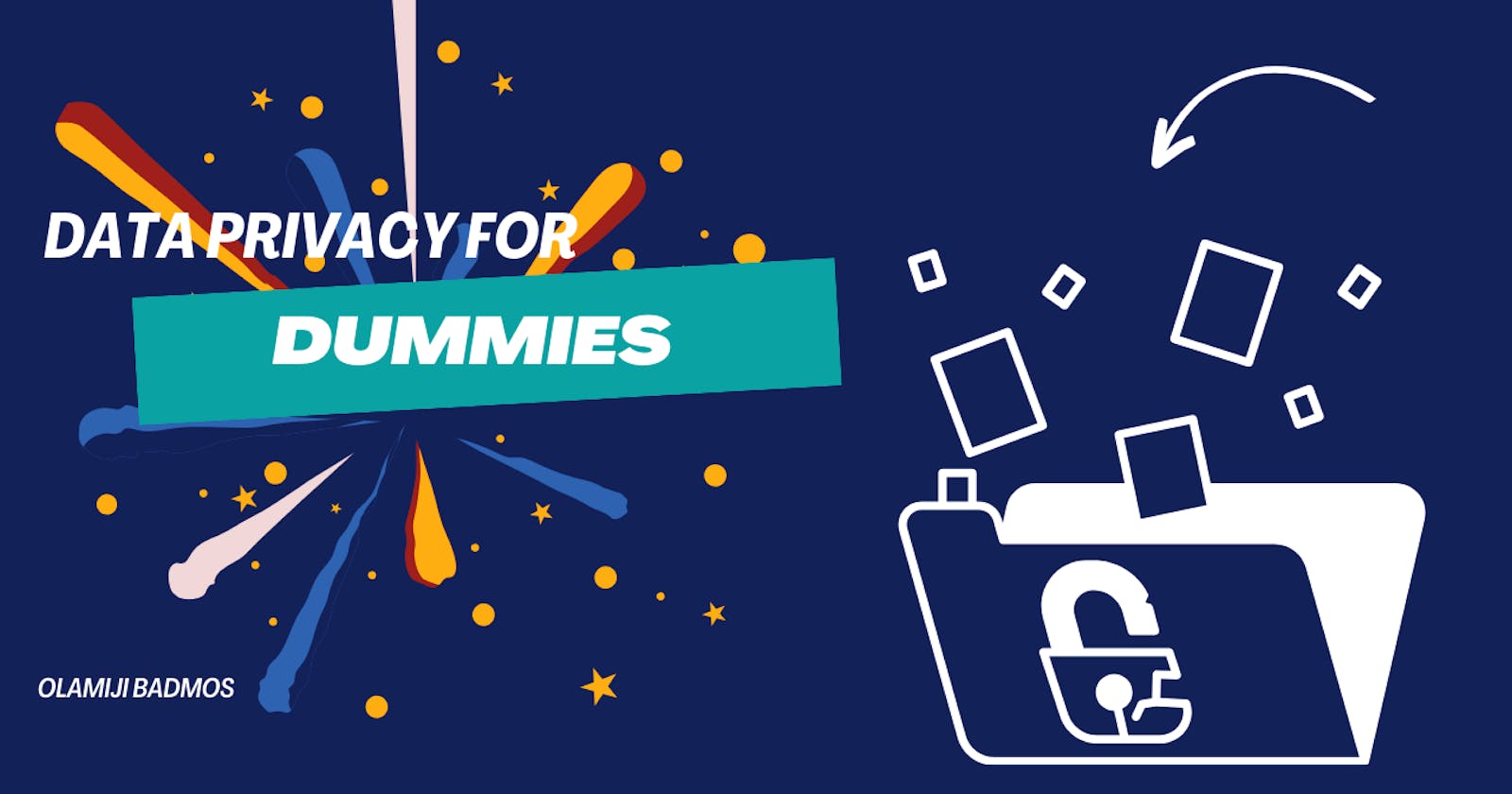Introduction
Sharing private information online has become commonplace in the current digital world. Whenever we make an online purchase or use social media, we voluntarily divulge a lot of information. However, there is a serious drawback to this convenience, maintaining our privacy.
Protecting personal data from unwanted access, use, or disclosure is the goal of data privacy. In this digital age, it's a major worry. The dangers of improperly managing personal data are evident as we navigate the digital landscape. Serious risks can arise from identity theft, cyberthreats, and improper use of personal data.
Prerequisites
This article is intended for readers who have a basic understanding of online environments, which includes people who use social media, do online transactions, or use the internet for recreational purposes. By guaranteeing this baseline requirement, we hope to enable readers with varying degrees of experience to take proactive steps to protect their digital presence.
Why Data Privacy Matters
In the age of digitalization, data privacy is critical. We disclose a great deal of personal information when we use the internet. Safeguarding this data is essential to maintaining confidence and adhering to ethical norms, in addition to being an issue of security. It's a commitment to preserve your security and confidence, not only to protect information.
Use for Purpose: Information should be gathered with a clear and specific goal in mind. Any departure from this goal necessitates getting user authorization, as it is against the law to misuse or repurpose personal data without consent.
Assurance of Accuracy: It is crucial to guarantee the precision, up-to-date, and significance of the gathered data. This idea protects against the spread of false information and aids in preserving the confidentiality of personal data.
User Control: A key component of data privacy is giving people authority over their data. To maintain control over their digital identity, people should be able to view, edit, or remove their information as needed.
Organizational Accountability: It is the duty of organizations to take accountability for the way they handle data. Ensuring the safety of personal information requires accountability, which is demonstrated by regular assessments, improvements, and a dedication to ethical data practices.
Robust Security: The implementation of robust security measures are necessary to prevent sensitive data from getting into the wrong hands. These measures include encryption and access controls, which together provide a crucial barrier against unauthorized access or data breaches.
Although the above-mentioned principles offer a basic structure, it's important to recognize that the fundamentals of data privacy go beyond these details. Adopting a holistic strategy necessitates ongoing education, flexibility, and a dedication to developing procedures that put the security and integrity of private data first in our dynamic digital environment.
Strategies for Data Privacy
Developing strong data privacy practices is essential in the complex web of the digital world, whether one is a business or an individual. These strategies act as guiding lights to help people and organizations handle sensitive data in an ethical and secure manner.
Personal Privacy Data: You are in charge when it comes to protecting the privacy of personal data! You are in charge of deciding who can access your data, where you want to enter it, and the best ways to protect your private information. Your digital journey is shaped by the decisions you make, and you can create the conditions for a safe and secure online experience by being conscious of your data.
Here are key steps to prioritize data privacy for yourself:
Secure Your Digital Space: Make sure you are safe when using the internet by frequently monitoring and modifying the privacy settings on your social media, email, and other accounts. To improve your overall online security and have control over who can access your information, only share personal details with people you can trust.
Know Before You Share: Take a moment to consider how your personal information will be used before disclosing it online. Each website has a privacy policy, which is a set of guidelines controlling your information. Is your data utilized for a specific reason or is it made public? It may seem boring, but it's important that you read and accept these guidelines.
Enable Two-Factor Authentication and Strong Passwords: Set a unique, strong password for every online account. Whenever it is possible, activate two-factor authentication to further strengthen account security.
Click and Share with Caution: Be careful clicking on email links or attachments, especially from unknown sources. Limit personal info on social media. Today's phishing attempts can be convincing; watch for typos, grammar mistakes, sudden urgency, immediate money demands, or anything suspicious. Trust your instincts and stay cautious online.
Digital Awareness and Literacy: Invest in your own level of digital literacy. Stay informed on what is going on with the internet and recognize and avoid any possible threats.
Safe Wi-Fi Procedures: Make sure your home Wi-Fi is secure by using WPA3 encryption and a strong password. Steer clear of public Wi-Fi when conducting important transactions to lower the possibility of unwanted access.
Corporate Privacy Data: Leveraging user data can offer valuable insights into your customers' needs and preferences. However, with this opportunity comes the responsibility to protect their data diligently.
Here are key steps to prioritize data privacy within your company.
Robust Policies and Training: Establish strong policies for data privacy, provide staff with frequent training, and continuous educational programs. Encourage a mindset of accountability and knowledge to properly safeguard user data.
Encryption and Secure Technologies: Utilize encryption and secure technologies to enhance protection against breaches and unauthorized access to data.
Make a thorough plan for handling incidents: Provide a detailed plan of action for promptly locating, containing, and resolving data breaches in order to minimize the damage they cause to the organization's active data protection culture.
Frequent Compliance Checks: Examine and verify how your company manages data privacy on a regular basis. Verify your adherence to the guidelines and standards and address any problems you discover.
Limit who has access to client data: Not every data must be accessible to everyone. To reduce the chance of breaches, protect data and only provide access to those who really need it. Review permissions frequently, and keep access restrictions ready.
While the strategies mentioned are crucial, it's a good idea to keep up with developments in data privacy. This guarantees that you are up to date with the most recent procedures, reducing the possibility of losing important data, whether personal or corporate. Keep yourself informed to properly protect your data.

Conclusion
As we come to an end to our article, let's go over the main topics again. We have studied "What is Data Privacy”, “Why Data Privacy Matters" and looked at useful "Strategies for Data Privacy." However, it's crucial to keep in mind that the landscape of data privacy is always evolving. Keeping abreast of events guarantees a robust defense against potential issues, protecting critical data for people and enterprises alike.
Data privacy isn't a one-time thing; it's an ongoing promise. By actively taking care of our digital presence, understanding privacy rules, and keeping an eye on the latest trends, we build a strong shield against online risks. In this world where everything is connected, your data isn't just data, it's a valuable thing that needs careful protection.
In summary, our experience with data privacy serves as a call to action. It serves as a reminder to maintain the safety of our online environment at all times. It's important to create a secure online environment in addition to handling issues as they arise. Prioritizing data privacy helps us safeguard information and equip our communities and ourselves to successfully navigate the digital age.
